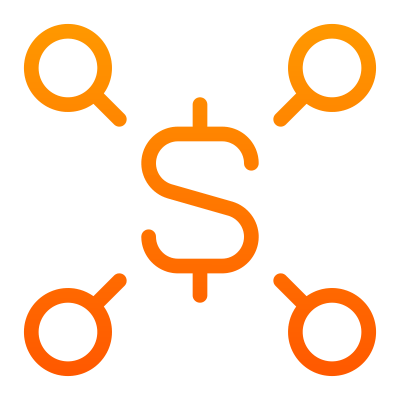Most common SEO mistakes – Search Engine Optimization (SEO) is the magic key that unlocks the door to greater website visibility and organic traffic.
Several factors can impact a website’s rankings in search engine results pages (SERPs).
While many things can be done to improve a site’s SEO, several common mistakes can hinder a site’s performance.

Top SEO Mistakes

1. Overusing Keywords
Keywords are an essential component of SEO, as they help search engines understand a website’s content.
However, overusing keywords can lead to what is known as “keyword stuffing,” which can harm a website’s rankings.
Keyword stuffing can make content difficult to read, which can result in a high bounce rate and low dwell time, both of which can negatively impact a website’s SEO.
To avoid this most common SEO mistakes, it’s important to conduct proper keyword research and use keywords naturally throughout your content.
This means using keywords where they make sense and avoiding the temptation to stuff them into your content. Remember, your content should be written for your users, not for search engines.

2. Content Quantity over Quality
Search engines prioritize high-quality content that is informative, engaging, and relevant to user search queries.
While consistently publishing content is important, focusing on churning out low-quality articles will do more harm than good.
Invest in creating valuable content that establishes your expertise, educates your audience, and keeps them coming back for more.

3. Not Optimizing for Mobile
With more and more people using mobile devices to access the internet, mobile optimization is more important than ever.
Websites that are not optimized for mobile devices may not rank as well in mobile search results, which can result in a significant loss of traffic.
To avoid this most common SEO mistakes, make sure your website is optimized for mobile devices.
This means using a responsive design that adapts to different screen sizes and loads quickly on mobile devices.
Search engines prioritize mobile-friendly websites, and users are likely to bounce off a website that’s difficult to navigate on their mobile devices.

4. Targeting the Wrong Keywords
SEO all starts with understanding your target audience and the keywords they use to search for products or services like yours.
Choosing high-volume, generic keywords might seem appealing, but the competition for those terms is fierce.
Instead, focus on long-tail keywords – more specific phrases that better reflect your niche and have a higher chance of ranking well.

5. Neglecting Page Speed
Nobody likes a slow website.
Search engines consider page speed a ranking factor, and users are impatient.
If your website takes too long to load, you’ll lose visitors and potential customers.
Optimize your website for speed by optimizing image sizes, minimizing HTTP requests, and utilizing caching mechanisms.
6. Ignoring Link Building
Link building is another important component of SEO. Inbound links from other websites can help to boost a site’s rankings in search results.
However, not all links are created equal.
Low-quality links from spammy websites can actually harm a site’s SEO.
To avoid this most common SEO mistakes, focus on building high-quality, relevant links.
This means reaching out to other websites in your niche and asking for links back to your site.
You should also consider creating valuable content that others will want to link to naturally.

7. Social Media Disconnect
Social media isn’t just a branding tool; it can also play a role in SEO.
Regularly sharing your content on social media platforms can increase website traffic and brand awareness.
Additionally, social media engagement signals to search engines that your content is valuable and relevant.

8. Not Paying Attention to Local SEO
One of the most common SEO mistakes is not paying attention to local SEO. Local SEO is critical for businesses that operate in a specific location.
It refers to the process of optimizing your website to improve your visibility in local search results.
Local SEO is essential for businesses that rely on local customers to drive sales.
Neglecting local SEO can cause you to miss out on potential customers who are searching for businesses in your area.
Some of the best practices for local SEO include creating local business listings, getting listed in online directories, optimizing your Google My Business profile, and using location-based keywords in your content.
9. Not Utilizing Structured Data
Structured data (also known as schema markup) provides search engines with additional information about your website’s content.
This can help search engines understand your content better and potentially display richer search results for your website, including star ratings or product descriptions.

10. Ignoring Analytics and Data
SEO is an ongoing process.
Regularly monitoring your website’s analytics provides valuable insights into user behavior, keyword performance, and overall SEO effectiveness.
Utilize website analytics tools to track key metrics, identify areas for improvement, and refine your SEO strategy.
Lesser-Known SEO Mistakes

While the previous section explored the most common SEO blunders, the road to SEO mastery is paved with avoiding subtler mistakes as well. Now we want to address more subtle SEO problems that, although they are not known as major mistakes, have a significant impact on the SEO of a website.

Cannibalization of Keywords
Keyword cannibalization occurs when multiple pages on your website compete for the same keywords in search results.
This confuses search engines and dilutes your ranking potential.
Conduct thorough keyword research and ensure each page on your website targets distinct, relevant keywords.

Broken Links and Redirects
Encountering broken links (links that lead to non-existent pages) or poorly configured redirects (links that send users to irrelevant pages) frustrates visitors and harms SEO.
Regularly check your website for broken links and ensure redirects are implemented correctly.

Ignoring Internal Linking
Internal linking involves creating hyperlinks within your website that connect relevant pages.
This helps search engines understand your website’s structure and improves user navigation.
Strategically link to relevant internal pages to distribute link value and improve website hierarchy.

Image SEO Neglect
Images can be powerful SEO tools.
However, neglecting to optimize image file sizes, alt text descriptions, and filenames can hinder your website’s visibility.
Optimize image elements by using descriptive filenames, compressing file sizes, and including relevant alt text that describes the image content for both users and search engines.

Meta Description Mishaps
Meta descriptions are brief summaries displayed under website titles in search engine results pages.
While not a direct ranking factor, compelling meta descriptions can entice users to click on your website.
Craft clear, concise, and keyword-rich meta descriptions that accurately represent your page content and encourage click-throughs.

Ignoring Local SEO
If you have a physical location, neglecting local SEO is a big miss.
Optimize your Google My Business listing, ensure consistent NAP (Name, Address, Phone number) citations across the web, and target location-specific keywords to improve your local search ranking and visibility.

Unsecured Website
Search engines prioritize secure websites (HTTPS) over non-secure ones (HTTP).
Not having an SSL certificate and displaying an HTTPS connection can negatively impact SEO and deter users who prioritize online security.

Ignoring Mobile Usability Issues
While mobile-friendliness is a core SEO principle, some businesses overlook deeper mobile usability issues.
Test your website on various mobile devices to ensure smooth functionality, fast loading times, and a user-friendly experience for mobile visitors.

Thin Content with Low Value
Search engines favor content that offers substantial value to users.
Pages with minimal content or content that lacks depth and fails to address user search intent will struggle to rank well.
Focus on creating informative, well-researched content that establishes your expertise and provides genuine value to your audience.

Black-Hat SEO Techniques
Black-hat SEO tactics like keyword stuffing, cloaking (showing different content to users and search engines), and link buying are unethical and can lead to website penalties from search engines.
Focus on white-hat SEO practices that prioritize user experience and organic growth.
Ready to Unlock Your Website's SEO Potential?
At MapleWebDesign, we offer a comprehensive range of SEO services in Vancouver, tailored to your unique needs and budget.
Contact us today for a free SEO consultation and discuss your goals!

Frequently Asked Questions
An SEO mistake is any action or omission that hinders your website’s search engine ranking and visibility.
This can include things like targeting irrelevant keywords, neglecting mobile optimization, or creating low-quality content.
Several factors can negatively impact your SEO.
- Keyword stuffing: Unnaturally cramming keywords into your content for ranking purposes.
- Poor content quality: Content that lacks value, is thin, or doesn’t address user search intent.
- Slow website loading speed: Users and search engines both prioritize fast-loading websites.
- Not being mobile-friendly: With mobile browsing dominating, a website that isn’t optimized for smartphones and tablets suffers in SEO.
- Broken links and redirects: Encountering broken links or poorly configured redirects frustrates users and harms SEO.
- Neglecting backlinks: Backlinks from high-quality websites are a trust signal for search engines.
- Unethical SEO practices: Practices like cloaking (showing different content to users and search engines) and buying links can harm your website.
There’s not a finite list of SEO errors, as the landscape keeps evolving.
However, by understanding core SEO principles and best practices, you can avoid common pitfalls and optimize your website effectively.
SEO can be challenging because it requires ongoing effort, adaptation, and staying updated on the latest trends.
Search engine algorithms are constantly changing, and what worked well yesterday might not be as effective today.
Additionally, SEO is a competitive landscape, and ranking well requires strategic planning and consistent optimization.
Bad SEO content is content that fails to provide value to users or fulfill their search intent.
- Thin content: Content with minimal substance that lacks depth or informative value.
- Keyword-stuffed content: Content that unnaturally prioritizes keywords over readability and user experience.
- Duplicate content: Having identical content on multiple pages confuses search engines and dilutes ranking potential.
- Content irrelevant to your target audience: Content that fails to address the needs and interests of your ideal customer.
“Toxic SEO” refers to unethical practices that aim to manipulate search engine rankings through deceptive means.
- Cloaking: Showing different content to users and search engines.
- Keyword stuffing: Excessively using keywords in an unnatural way.
- Buying links: Purchasing backlinks from low-quality websites.
- Link spamming: Flooding the internet with irrelevant links pointing to your website.
- Ignoring Core Web Vitals: Google prioritizes websites that offer a good user experience, including fast loading speed, mobile-friendliness, and visual stability.
- Neglecting User Search Intent: Focus on creating content that addresses the specific questions and needs of your target audience.
- Underestimating the Power of Video: Video content is increasingly popular and can be a powerful SEO tool.
- Forgetting Local SEO (for Brick-and-Mortar Businesses): Ensure your Google My Business listing is optimized and target location-specific keywords.
- Not Utilizing Structured Data: Implement schema markup to provide search engines with richer information about your website content.











